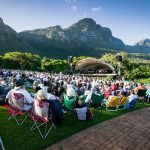NEW YORK — The Americans are No. 1 for next year’s FIFA World Cup – when it comes to ticket sales.
U.S. purchasers already have bought 93,300 tickets for next year’s tournament in South Africa, the head of the local organizing committee said Friday.
Danny Jordaan gave a presentation on preparations Friday at the South African Consulate General in New York, and said the 32-nation tournament already is proving doubters wrong. This will be the first time the World Cup or the Olympics will be held in Africa.
“The argument has essentially been twofold,” Jordaan said at the start of his 40-minute presentation. “One, that from a commercial point of view, the African continent will not realize a profitable World Cup or a profitable Olympics, and secondly that from an infrastructure point of view, that no African country will have the infrastructure or the resources and the capacity, the human capacity, to deliver these events.”
That, he said, has been debunked by the finances. FIFA has generated US$3.2 billion from its broadcasting and commercial partners, $400 million more than the 2006 World Cup in Germany. Construction is nearing completion at the 10 stadiums in nine cities that will be used for the 64 games. Airports have been upgraded in Johannesburg, Cape Town and Durban.
Given that South Africa was divided by apartheid in 1948 and that national elections didn’t take place until 1990, progress leading up to the tournament has been remarkable. Sunil Gulati, the Indian-born president of the U.S. Soccer Federation, recalled talking about it with U.S. coach Bob Bradley on a beach in Durban when they attended the World Cup qualifying draw two years ago.
“About 30 minutes into the long walk we were making, I said, Bob, ‘Think about it,”‘ Gulati recalled. “‘Not too long ago, I couldn’t have been on this walk with you.’ If they can overcome those sorts of challenges, I have absolutely no doubt about all the technical issues.”
Gulati was part of the U.S. organizers of the 1994 tournament and is heading the bid to bring the tournament back to the United States in 2018, or more likely 2022. He said the challenge for South Africa was the same as it was for the U.S.: “Trying to convince the world that the World Cup was in safe hands.”
“It was a different convincing in the case of the U.S.,” he said. “We had to convince them that people would care, that people would come to games, that the distances weren’t too big, that it wasn’t going to be too warm in Orlando – we didn’t convince them on the last part, by the way.”
Fifteen years later, he said the U.S. is not only No. 1 in ticket sales, it is tops in broadcast rights fees. Major League Soccer commissioner Don Garber said last month ABC/ESPN and Univision will be paying FIFA a combined $325 million for English and Spanish U.S. television rights to the 2010 and 2014 tournaments.
Jordaan said 450,000 tourists are expected for next year’s World Cup, down from two million in Germany. The lowest ticket price, which was $60 in 2002 and 35 euros (then $45) in 2006, has been cut to $20 for South Africans.
That was done “to make sure that this event does not only cater for the top end in country but also for the poor, ordinary working-class people in country,” Jordaan said, “because it is on their backs that we carried this bid. Those are the people who went into the streets and to celebrate the fact that Africa’s first World Cup is coming to our country.”
Crime is the biggest concern heading into the tournament, and into next month’s eight-nation Confederations Cup tournament, where the United States plays Italy, Brazil and Egypt. Jordaan maintains South Africa has hosted 146 major events, “all of them successful, all of them without a single incident.” They include the 1995 Rugby World Cup, the 1996 African Cup of Nations soccer tournament and part of the 2003 Cricket World Cup.
Soccer’s World Cup is much bigger. Jordaan estimates it will bring 15,000 media and require 45,000 hotel rooms even before counting fans. Jordaan said 415,000 jobs were created, 20,000 in stadium construction alone, and that 25 new hotels were built.
“It’s about nation-building and country branding,” he said. “How do you create a single nation with a single vision, a nation that comes from a divided past? I’ve said very often that Germany 2006 has shown us that model, that in Germany after 1945, you had two Germanys divided by a wall between East and West Germany. In South Africa, you had the nation divided by legislation, between black and white.”
Through the World Cup, he hopes to change South Africa’s image.
“It’s about trade. It’s about investment. It’s about business. It’s about tourism. Those are the stories that we think we want to place on the media platforms,” he said. “We’ve had the stories of coups and disease and all of those stories. On the African continent, we’re not spending all of our lives dealing with those issues. We also have a future that we want to build for ourselves which is bright.”
Copyright © 2009 The Canadian Press. All rights reserved.
Looking for Cape Town Accommodation, Hotels, Car Hire or Tours for World Cup 2010? Visit our accommodation page, or contact us and let one of our travel specialists assist you directly.
www.cometocapetown.com TEL: (0027)836173419





